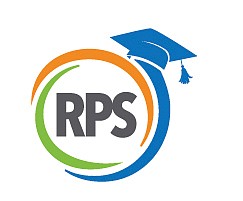Richmond Virtual Academy may become its own school
Ronald E. Carrington and Jeremy M. Lazarus | 4/14/2022, 6 p.m.
The Richmond Virtual Academy is to become a new elementary school that could enroll between 400 and 500 students a year in online classes, the Richmond School Board decided Monday night.
Instead of phasing out the program online learning program as Superintendent Jason Kamras proposed in February, the board, after hearing pleas from academy supporters, adopted a proposal by School Board member Kenya Gibson, 3rd District, to make RVA a school of record like other elementary schools, and eligible for annual state and local funding like other schools.
While that decision must be approved by the state Department of Education, the vote to keep RVA as a functioning entity came as the board finalized its budget for the 2022-23 fiscal year. The board had a deadline on Wednesday to deliver a finished budget to City Council.
Overall, the approved budget authorizes a record $548 million in total spending, or an expenditure of about $25,253 for each of the 21,700 students RPS estimated as enrolled in pre-kindergarten through 12th grade.
Along with grants and one-time federal funds, the RPS budget provides $356.6 million in general fund spending, which mostly includes revenue from the city and state, or about $16,400 per student.
The board, which cut $6 million from Mr. Kamras’ original general fund proposal, is relying on receiving a $15 million increase from the city in the fiscal year that begins July 1. That would boost total support from the city from $185.3 million this fiscal year to a new record of $200.3 million in 2022- 23. The increase from the city is largely designed to fund the local share of a 5 percent pay increase for teachers and other staff that the state plans to institute.
Staff and teachers of the Richmond Virtual Academy, currently listed as a program and funded with federal CARES Act dollars, advocated for it to remain open and funded and rallied parents to lobby for the survival of the academy that adopted the owl as its mascot and bills itself as a space “where learning is a hoot.”
The board’s vote was both a reaction to the lobbying and a rebuke to the administration, which had notified the academy’s entire staff that they would be laid off as of July 1 and would need to reapply for positions within RPS.
Mr. Kamras initially proposed cutting the program from 70 to just 10 instructors, who would largely teach homebound students too sick or injured to come to school or students removed from in-person learning for discipline reasons.
Cindi Robinson, the academy’s principal, said the board’s action is good news for parents and students.
“Virtual learning is not just a Band-Aid,” Ms. Robinson said, noting that numerous school divisions have found some students “actually thrive and do better” in an online program.
Among them is Sheila Barlow’s 19-year-old son, Douglas. Ms. Barlow told the board that the virtual school has been a boon for her son and other students like him with serious disabilities who can now attend class from home in a safe environment.
Her son has Down syndrome and cannot talk, she said. “He has a sign language interpreter for all of his classes,” Ms. Barlow told the Free Press. “If he goes back to in-person learning, my son would not have that service.”
While the board’s action appears to have saved the virtual academy, the board’s funding will provide only for a reduced operation.
Richmond’s virtual operation enrolls about 768 students, including 500 elementary school students, which is fewer students than Henrico and Chesterfield’s school systems. But that would shrink further.
The board’s funding would allow for only 30 total staff, including a principal, counselors and other staff and about 23 instructional staff strictly for elementary programming. Currently, the school has at least 70 staff members, including a 43-member instructional staff.
As part of the transition, the School Board agreed with the administration’s plan to end enrollment for middle and high school students who can move to the state’s online program, Virtual Virginia.
The revamped Richmond Virtual Academy also will oversee virtual educational programming for students who are home- bound for disciplinary or health reasons.
According to board members, the administration is expected to drop the current homebound program that dispatches teachers to the homes of students to provide in-person instruction two hours a day.
If it becomes a school of record as anticipated, RVA would not only have a budget, but would also report state Standards of Learning test results.
The board’s budget, meanwhile, cuts more deeply into the central office staff than Mr. Kamras proposed and largely eliminates contracts for consultants pro- viding curriculum training.
Ms. Gibson also won approval for an audit of Mr. Kamras’ original budget plan after she turned up a significant discrepancy in total employee numbers compared with the current year.
The board also provided funding for the first time to enable 400 students to take math, science and other required high school classes at the Richmond Technical Center along with their career and vocational training programs.
Under the initiative advanced by Jonathan Young, 4th District, the students will no longer have to be shuttled back to their home schools for those courses. This change is seen as a harbinger of the proposed career and technical high school that RPS plans to create in a former tobacco plant in South Side.
In addition, the board also provided funds to support an increase in the number of students during the next four years at two specialty high schools, Richmond Community and Franklin Military Academy, and three regional high schools, Code RVA and the Maggie L. Walker and Appomattox regional governor’s schools.







